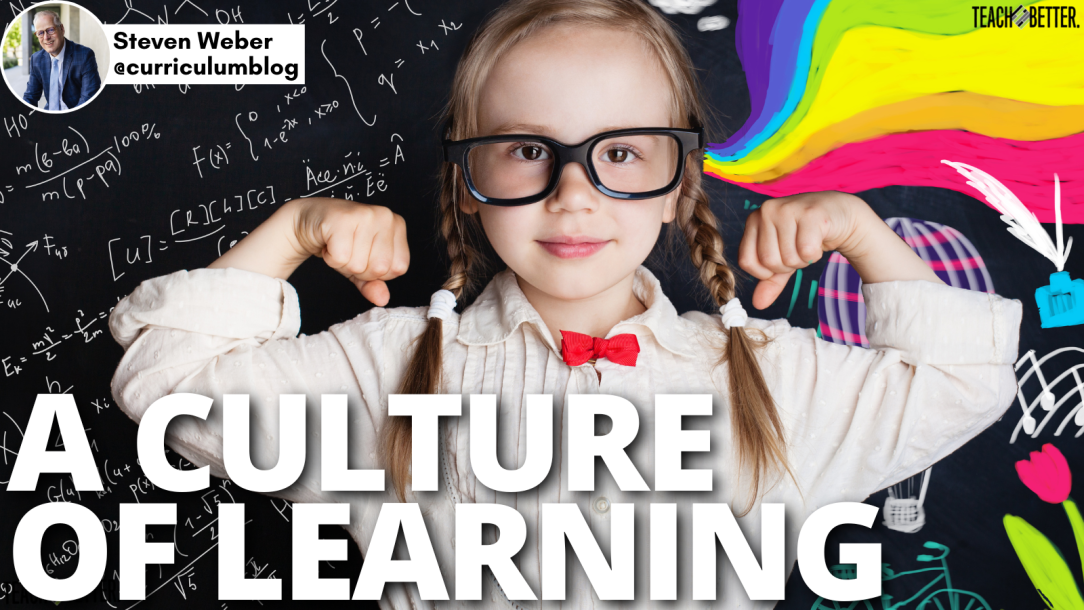TL;DR:
- Schools were designed for both teaching and learning.
- The top skills kids need to know are analytical thinking and innovation, active learning and learning strategies, complex problem-solving, critical thinking and analysis, creativity, originality, and initiative.
- The difference between teaching and empowerment is when a teacher becomes so focused on the destination that students are not allowed to drive the car.
- Empowered learners are able to focus on their individual strengths while learning and applying new skills.
The fundamental purpose of school is learning, not teaching.
– Richard DuFour
Teaching and Learning
Schools were designed for teaching and learning. If we overemphasize teaching, we could miss the opportunity to truly empower students. Traditional curriculum design focuses on activities, standards, key skills, learning targets, and assessments. As a teacher and administrator, I have worked with teams of teachers to develop curricula with these components. Using a framework to develop a curriculum is a common practice that supports the work of teacher teams and school districts.
As a result of our focus on teaching, most students will not be able to recite the state standards or share which learning target was their favorite by the end of the unit. The goal should be to prepare students for success at the next grade level and beyond high school. If empowerment is the goal, educators must reflect on what an empowered learner looks like and how to design a culture of learning.
The World Economic Forum listed the Top 5 Skills of 2025:
- Analytical Thinking and Innovation
- Active Learning and Learning Strategies
- Complex Problem-Solving
- Critical Thinking and Analysis
- Creativity, Originality, and Initiative
Source: World Economic Forum, 2020
What Are We Intentional About?
Reflect on the Top 5 Skills listed above. Are students practicing these skills on a regular basis in our classrooms? In some classrooms, teachers are intentional about covering the curriculum, preparing students for the next benchmark assessment, or teaching the learning targets outlined in the school district’s curriculum. There is nothing wrong with being intentional about teaching. Great teachers have a plan and know the ‘end in mind.’ The difference between teaching and empowerment is when a teacher becomes so focused on the destination that students are not allowed to drive the car.
Sawyer (2014) wrote, “The process of reflection has the potential to deepen the learning and puts students squarely in the driver’s seat as they think about where they are in the process and what they should do next.” When educators design a culture of learning, the focus shifts from what students should know to what evidence students can provide to highlight their understanding.
[scroll down to keep reading]Characteristics of Classrooms That Empower Learners
- Accountable Talk
- Adaptability
- Agency
- Authentic Assessment
- Application
- Concept-Based Teaching and Learning
- Communication
- Design Thinking
- Essential Questions
- Failure and Second Attempts
- Feedback
- Goal Setting
- Innovation
- Inquiry Learning
- Learner Pathways
- Metacognition
- Possibility Thinking
- Productive Struggle
- Problem Solving
- Project-Based Learning
- Relevant Assignments
- Risk Taking
- Scaffolding
- Self-Directed Learning
- Service Learning
- Small Wins
- Students Ask Questions
- Student Contribution
- Student Voice
- Transfer or Transfer Skills
- Writing
Questions for Teacher Teams: Shifting From Teaching to Empowerment
- What opportunities will students have to demonstrate their understanding throughout the lesson?
- What is the balance between compliance and student contribution in our classrooms?
- Are we designing assignments that allow all students to feel empowered or one-size-fits-all assignments?
- Does the unit provide students with multiple opportunities to reflect on their own thinking?
- When was the last time students had the opportunity to struggle in this class?
What did productive struggle look like and were students given multiple opportunities to demonstrate their understanding? - Are we preparing students to succeed in the workforce or to get an A on the end-of-unit assessment?
- What evidence do we have to support that our school has a Culture of Learning?
Empowerment in a Culture of Learning
Are your lessons designed to teach students or to empower learners? Empowered learners are able to focus on their individual strengths while learning and applying new skills. When teachers are intentional about empowerment, deep student understanding is more likely. The emphasis on student empowerment does not minimize the importance of standards, key skills, or learning targets. A checklist approach to teaching and learning may result in covering all of the standards at the expense of developing empowered learners. “Changing the game of school means actually allowing students to create their own game. This is empowerment” (Spencer & Juliani, 2017). What would it look like if you gave students permission to drive the car? Together, we can continue to design lesson plans or we can design a Culture of Learning.
References
Sawyer, R. K. (Ed.) (2014). The Cambridge handbook of the learning sciences (2nd ed.). Cambridge University Press.
Spencer, J., & Juliani, A.J., (2017). Empower: What happens when students own their learning. Impress.
World Economic Forum (2020, October 21). These are the top 10 job skills of tomorrow – and how long it takes to learn them. Retrieved from https://www.weforum.org/agenda/2020/10/top-10-work-skills-of-tomorrow-how-long-it-takes-to-learn-them/.
About Steven Weber
Dr. Steven Weber is the Associate Superintendent for Teaching and Learning with Fayetteville Public Schools (AR). His areas of research include curriculum design, formative assessment, professional learning, and school leadership.



